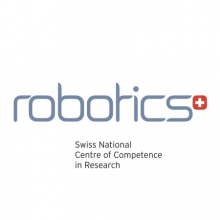
Robohub.org
Teaching the teachers: Study focuses on how teachers perceive educational robots in classrooms

Thymio in the classroom. Source: YouTube
Despite phenomenal advances in the field of robotics in recent years and specifically the field of robots for use in the classroom, there is still a large shortfall in the number of teachers who actively involve robots in their lessons. In order to try to understand this gap in the usage of teaching robots, a group from NCCR Robotics and LSRO, EPFL completed a study focusing on teachers who had completed training sessions for the Thymio educational robot.
Where most previous studies on robots used in schools have concentrated on acceptance by students, this study focused on their teachers, with the idea that teachers are those who decide what to include in their lessons, and thus are those who need to be convinced of the value of robots in classrooms. The study found that not only did teachers tend to be more sure of the abilities of their students to use the robots than of their own, meaning that they did not always feel comfortable to include robots in their lessons, but also that they were more likely to incorporate robots into teaching plans if they felt that they would also learn something about robotics themselves. This “soif de connaissance” and desire to transmit it highlights the need for specific teacher training sessions, allowing teachers to feel more comfortable in their own abilities and to increase their knowledge of a certain field area.
The research also showed that more teachers were put off from using educational robots by the perception that set-up of exercises will take a significant amount of time. It therefore has been shown that in order for robots to progress fully into the classroom, resources and turn-key practice exercises need to be made not only freely available, but also be well publicised.
Recent exercises have shown that a concerted effort to create fun, educational activities can result in Thymio being used for a wide variety of teaching goals. One example took place in April 2016, where a group of NCCR Robotics and LSRO, EPFL researchers went to the Cambridge, UK science festival and worked with researchers at the Cambridge Stem Cell Institute at the University of Cambridge to explain the concept of stem cells using Thymio at a public education event. Thymio has also recently been included in a new set of exercises distributed to 10’000 French schools and is to be adopted for the 2016-2017 school year. Robots need not only be used to explain robotics and computer science, but can be used for a wide variety of subjects such as geography, biology and art.
It is generally understood that robotics is a significant part of the future of society, and this latest paper addresses not just the acceptance of robots by the children who we aim to teach, but the acceptance of those who will be teaching them. With this in hand, NCCR Robotics can tailor aspects of its research in the Transversal Educational Activity (TEA) to create an affordable teaching robot and accessible exercises to facilitate the entry of robots into the classroom.
Thymio has a number of exercises designed for teachers to use during classes on their website, along with a tutorial written by Prof. Mordechai (Moti) Ben-Ari, an expert in educational science at the Weizmann Institute of Science, to show teachers how the exercises work.
Reference:
M. Chevalier, F. Riedo and F. Mondada, “How do teachers perceive educational robots in formal education? A study based on the Thymio robot*”, IEEE Robotics & Automation Magazine, vol. 23, no. 2, pp.16-23, 2016.
tags: c-Education-DIY, Thymio




